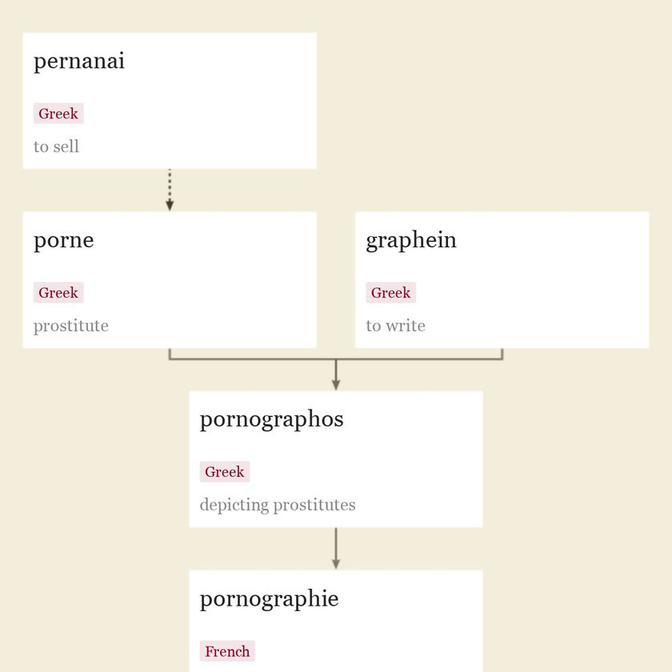pornographic adj.
"
Entries linking to pornographic

1842, "
A brothel in ancient Greek was a porneion. In reference to modern works by 1859 (originally French novels), later as a charge against native literature; the sense of "
Pornography, or obscene painting, which in the time of the Romans was practiced with the grossest license, prevailed especially at no particular period in Greece, but was apparently tolerated to a considerable extent at all times. Parrhasius, Aristides, Pausanias, Nicophanes, Chaerephanes, Arellius, and a few other [pornographoi] are mentioned as having made themselves notorious for this species of license. [Charles Anthon, "Dictionary of Greek and Roman Antiquities," New York, 1843]
I shall not today attempt further to define the kinds of material I understand to be embraced within that shorthand description [hard-core pornography]; and perhaps I could never succeed in intelligibly doing so. But I know it when I see it, and the motion picture involved in this case is not that. [U.S. Supreme Court Justice Potter Stewart, concurring opinion, "Jacobellis v. Ohio," 1964]
E. Bray in The Medical Archives [December 1872] proposed porniatria for "
Pornocracy (1860) is "
Middle English -ik, -ick, word-forming element making adjectives, "
In Middle English and after often spelled -ick, -ike, -ique. Variant forms in -ick (critick, ethick) were common in early Modern English and survived in English dictionaries into early 19c. This spelling was supported by Johnson but opposed by Webster, who prevailed.
1952 (Norman Mailer), short for pornographic.
updated on September 04, 2020